Career
Johnstone served in Vietnam from 1965 to 1970. A Vietnamese linguist by training,he worked first with the U.S. Agency for International Development,and then with the U.S. State Department. [1] Upon returning to the United States,he became a Fellow with the Council on Foreign Relations,and then with the Institute of Politics at Harvard University. He went back to Vietnam in 1975 on a rescue mission for Vietnamese citizens who had assisted the United States,and then continued his refugee work as part of a team assisting in the resettlement of Vietnamese refugees. He then worked on the Egypt-Israel negotiations for the return of the Sinai to Egypt.. [2]
Johnstone was posted to the U.S. Embassy in Canada,Jamaica,and Paris as the U.S. Vietnam negotiator. He was a State Department coordinator with the UN General Assembly,and also served as deputy assistant secretary of state for Latin America. [2] From 1985 to 1988,he was United States Ambassador to Algeria. [1] [3]
He worked for Cabot Corporation in Brussels between 1989 and 1994,and then returned to government to serve as director for resources,plans and policy in the Office of the Secretary of State from 1994 to 1999. He was then a senior vice president for the U.S. Chamber of Commerce,and later left to become the European vice president and general manager for Boeing. In 2007,Johnstone was named UN Deputy High Commissioner for Refugees. [2]
Johnstone is a member of the American Academy of Diplomacy,and a board member of Refugees International,and Vital Voices Global Partnership.
The Office of the United Nations High Commissioner for Refugees (UNHCR) is a United Nations agency mandated to aid and protect refugees, forcibly displaced communities, and stateless people, and to assist in their voluntary repatriation, local integration or resettlement to a third country. It is headquartered in Geneva, Switzerland, with over 18,879 staff working in 138 countries as of 2020.

Graham Anderson Martin was an American diplomat. He was the ambassador to Thailand and as U.S. representative to SEATO from 1963 to 1967, ambassador to Italy from 1969 to 1973 and the last United States Ambassador to South Vietnam from 1973 until his evacuation during the Fall of Saigon in 1975.

Henry Cabot Lodge Jr. was an American diplomat and politician who represented Massachusetts in the United States Senate and served as United States Ambassador to the United Nations in the administration of President Dwight D. Eisenhower. In 1960, he was the Republican nominee for Vice President on a ticket with Richard Nixon, who had served two terms as Eisenhower's vice president. The Republican ticket narrowly lost to Democrats John F. Kennedy and Lyndon B. Johnson; Lodge later served as a diplomat in the administrations of Kennedy, Johnson, Nixon, and Gerald Ford and was a presidential contender in 1964.
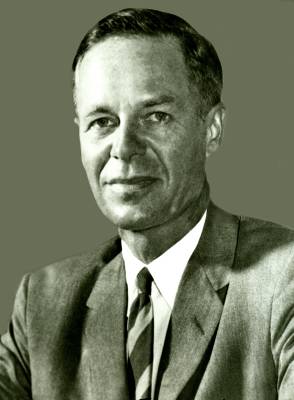
Charles Woodruff Yost was a career U.S. Ambassador who was assigned as his country's representative to the United Nations from 1969 to 1971.

William Healy Sullivan was an American Foreign Service career officer who served as ambassador to Laos from 1964 to 1969, the Philippines from 1973 to 1977, and Iran from 1977 to 1979.
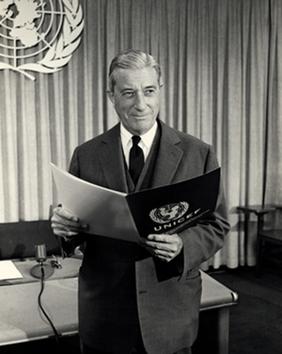
Henry Richardson Labouisse Jr. was an American diplomat and statesman. He was the third Director of the United Nations Relief and Works Agency for Palestine Refugees in the Near East (UNRWA) from 1954 to 1958. He was the director of the United Nations Children's Fund for years (1965–1979). He was also a member of the Council on Foreign Relations. A lawyer, he was United States Ambassador to France 1952–1954, as well as United States Ambassador to Greece 1962–1965. Labouisse had been the principal United States Department of State official dealing with the implementation of the Marshall Plan.

John Gunther Dean was an American diplomat. From 1974 to 1988, he served as the United States ambassador to five nations under four American presidents.
William Lester Eagleton Jr. was a United States Foreign Service Officer and diplomat who served as Ambassador to several Middle Eastern and North African states.
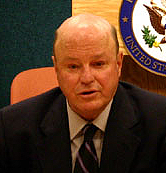
Frank George Wisner II is an American businessman and former diplomat who had served as acting United States Secretary of State for a few hours following the resignation of the previous acting United States Secretary of State Arnold Kanter at noon on January 20, 1993 until the confirmation by the United States Senate and swearing in of Warren Christopher as United States Secretary of State later that day. He is the son of CIA official Frank Wisner (1909–1965). On January 31, 2011, he was sent to Egypt by President Barack Obama to negotiate a resolution to the popular protests against the regime that had swept the country. A White House spokesman said that Wisner had vast experience in the region as well as close relationships with many Egyptians in and out of government. The New York Times reported that he was a personal friend of former Egyptian president Hosni Mubarak.
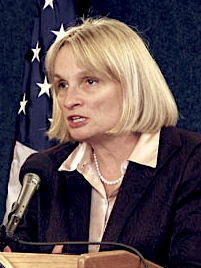
Wendy Jean Chamberlin is a veteran diplomat who has served in the United States Department of State and USAID, worked for the UN High Commissioner on Refugees (UNHCR), and served as President of the Middle East Institute until 2018.
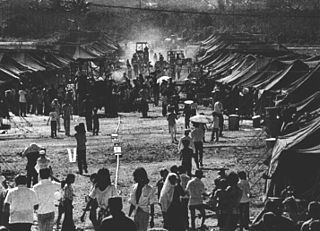
Operation New Life was the care and processing on Guam of Vietnamese refugees evacuated before and after the Fall of Saigon, the closing day of the Vietnam War. More than 111,000 of the evacuated 130,000 Vietnamese refugees were transported to Guam, where they were housed in tent cities for a few weeks while being processed for resettlement. The great majority of the refugees were resettled in the United States. A few thousand were resettled in other countries or chose to return to Vietnam on the vessel Thuong Tin.

Robert Sherwood Dillon was the United States Ambassador to Lebanon from 1981 to 1983. He was born in 1929 in Chicago and attended Duke University, graduating in 1951.
Joseph Abraham Mendenhall was a United States State Department official, known for his advisory work during the Kennedy administration on policy towards Vietnam and Laos. He was best known for his participation in the Krulak Mendenhall mission to South Vietnam in 1963 with General Victor Krulak. Their vastly divergent conclusions led U.S. President John F. Kennedy to ask if they had visited the same country. Mendenhall continued his work in the Indochina region after Lyndon B. Johnson assumed the presidency in wake of Kennedy's assassination.

Robert Halsey Pelletreau Jr. is an American former diplomat who was United States Ambassador to Bahrain (1979–1980), Tunisia (1987–1991), and Egypt (1991–1993), as well as the former Assistant Secretary of State for Near Eastern Affairs. He currently sits on the U.S. Advisory Council of the Israel Policy Forum. He is also a member of the American Academy of Diplomacy and Council on Foreign Relations.

Charles Sheldon Whitehouse was an American career diplomat. He was United States Ambassador to Laos and the United States Ambassador to Thailand.

Francis Terry McNamara is a retired career Foreign Service Officer, ambassador and author.

William James Porter was a British-born American diplomat who from 1971 to 1973 headed the U.S. delegation to the Paris Peace Talks to end the Vietnam War. Porter was the first-ever United States Ambassador to Algeria, and also served as Ambassador to South Korea, United States Ambassador to Canada, and Saudi Arabia.
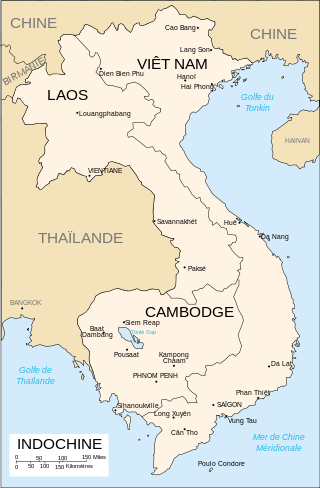
The Indochina refugee crisis was the large outflow of people from the former French colonies of Indochina, comprising the countries of Vietnam, Cambodia, and Laos, after communist governments were established in 1975. Over the next 25 years and out of a total Indochinese population in 1975 of 56 million, more than 3 million people would undertake the dangerous journey to become refugees in other countries of Southeast Asia, Hong Kong, or China. According to the United Nations High Commissioner for Refugees, 250,000 Vietnamese refugees had perished at sea by July 1986. More than 2.5 million Indochinese were resettled, mostly in North America, Australia, and Europe. More than 525,000 were repatriated, either voluntarily or involuntarily, mainly from Cambodia.

Theodore George Osius III is an American diplomat and the former United States Ambassador to Vietnam.

Lionel Alexander Rosenblatt is a former American diplomat, Refugee Coordinator at the United States Embassy in Thailand, and President of Refugees International, an advocacy organization for refugees. Rosenblatt was one of the foremost advocates for resettling Indochinese refugees in the United States during the 1970s and 1980s.

















